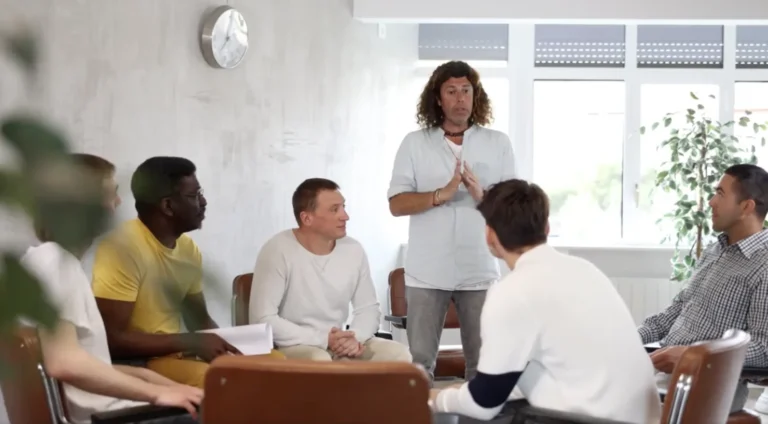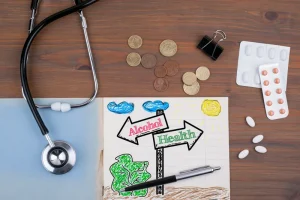
Not only does volunteering help us get out of our heads and inot the present moment. This helps us to see and appreciate the good things in our lives now. Most everyone has heard the question, “Is the glass half empty or half full? ” this simple question illustrates being grateful and not being grateful. When we walk through life and see everything that is wrong, everything that isn’t going our way, everything that we wish was different, we will continue to see more and more of the same. Addiction can be isolating, and it creates pain and misunderstanding in relationships of all kinds.
How Gratitude Benefits Mental Health and Brain Function
If you’re already using a journal to support your recovery, you can add a gratitude section or allot part of every entry to record things that you’re grateful for that day. You may also want to create a dedicated gratitude journal to keep you focused. Journaling has a long-established history as a tool for self-discovery and healing. Journal therapy is a part of many kinds of counseling and group work, but anyone can use a journal to explore feelings, process events, and create conditions for change. For people working toward recovery, a journal can be a place to track progress, uncover causes for addiction, and figure out new ways of dealing with stressful situations. At Spero, gratitude is not just encouraged; it’s woven into the fabric of daily activities and therapies.
Gratitude Is a New Way of Thinking, a New Way of Being
In recovery, we are given the space to be grateful, but it still takes time to practice and train the mind to notice and cherish the beauty in life. We should be patient with our feelings while our minds recalibrate to those details that most deserve our appreciation and respect. A feeling of gratitude is similar to a sense of solid appreciation.

Make Gratitude a Daily Practice
It involves a profound and personal journey where individuals learn to appreciate the simplest moments of victory. It’s within these moments that gratitude grounds us, why is gratitude important in recovery transforming the recovery experience into one of hope and renewal. Dedicate a few minutes each day to quietly reflect on the aspects of your life you appreciate.
- Conditioning your mind to be thankful instead of sorry is a sure sign your attitude of gratitude is improving.
- Gratitude is also the antidote to negative thinking that reduces hope and happiness.
- To find a therapist, check with your health insurance for a list of covered providers.
- In your journal, take time to note down the things and events of the day that you’re grateful for.
- It’s important to keep in mind that things don’t have to have any significance for you to be grateful for them.
Active addiction can damage your physical and mental health, relationships, finances, and your self-worth. It can also make you lose sight of all the things and people in life you feel grateful for and zoom in only on the problems and difficulties you face. This can lead to a cycle of despair and self-destructive behaviors that may be difficult to stop. Many great thinkers and philosophers have applied definitions to gratitude. Recent work on the concept of gratitude in philosophy and psychology. The Journal of Value Inquiry,47 (3), … Continue reading What they lead back to is thankfulness for what you have and where you are in life.
- We should be patient with our feelings while our minds recalibrate to those details that most deserve our appreciation and respect.
- Below are some practical tips for developing gratitude while in recovery.
- …then read on to learn the benefits, get some tips to maximize your efforts and see how it all ties together to form the happiest version of you.
- We feel satisfied and content – all of which enables us to feel better in body, mind, and spirit.
- This makes for a more sustainable healing process for each person.
There are various ways to practice gratitude, but the most important part is to appreciate what you have and what you’ve accomplished. When you cultivate gratitude, you also avoid negative thinking and behaviors. By focusing on the good things, you can develop a more positive outlook and increase the likelihood of a successful recovery. Having gratitude can also help you appreciate https://ecosoberhouse.com/article/diabetes-and-alcohol-can-diabetics-get-drunk/ those who support you, strengthening your relationship with them. In recovery, make self-care a priority by taking steps to improve your circumstances or your health, or saying no to people and activities that don’t support your goals for recovery. When someone is addicted to drugs or alcohol, getting and using them becomes a priority –and recovery should be a priority as well.
It will make you healthier and stronger, and keep you committed to healing. You are ready to start your own list of things to show gratitude for while in recovery. Write down everything you are thankful for, from the big things to the simple joys of everyday life.
Support Our Mission

Things to Be Grateful For In Recovery
- According to Robert Emmons, the world’s leading scientific expert on gratitude, people who prioritize gratitude are more successful at reaching their personal goals than those who don’t.
- These are the things — big or small — that make you feel lucky and have helped guide you in the right direction.